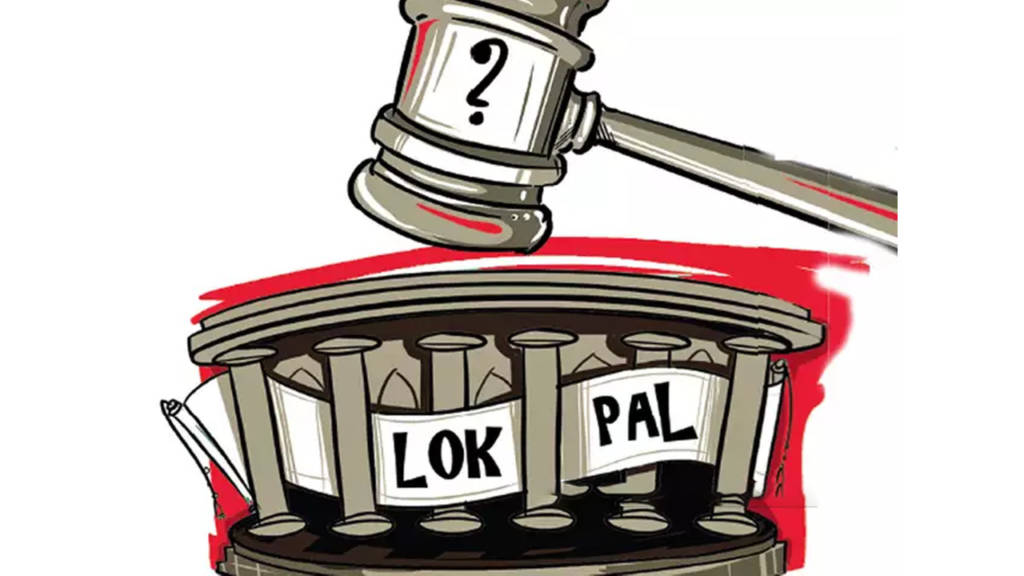Pinaki Chandra Ghose, the first Lokpal Chairperson, appointed by the Modi government is spending 50 Lakh Rupees per month for office. Lokpal was supposed to be India’s apex body against corruption, set up to address complaints against public officials. Given the absence of permanent office, PC Ghose is operating from the government-owned 5-star hotel- Ashoka.
As per an RTI reply, “Lokpal is provisionally operating from the Ashoka Hotel. Total monthly rent is around Rs 50 lakh and Rs 3 crore 85 lakh has been paid till now ( from March 22, 2019, to October 31, 2019) for rent fixed by the Department of Personnel and Training (DOPT).”
So far, the office of Lokpal has heard only 100 cases out of the total 1,100 complaints received. The office of Lokpal has not given any productive output since March this year when the Modi government appointed the first Lokpal.
The idea of Lokpal was undemocratic, extra-constitutional and elitist. The very idea of an all-powerful anti-corruption body was against ethos of the constitution, which gives the mandate for executive body to be the most powerful body in the country.
The idea of Lokpal was vigorously supported by the powerful members of India’s civil society like- Prashant Bhushan, Arvind Kejriwal (who used to run India Against Corruption) who wanted to control ‘executive’ through this extra-constitutional body. The anti-corruption activists, who operated behind the veil of Anna Hazare, were ‘elitist’ with contempt for the executive body of the government.
These were the same people who took advantage of the weaker alliance government at the centre and became power brokers. The kind of support Lokpal received from the media, academia and judiciary (all unelected and amassed power during alliance regime), is the best evidence of that the ‘Lokpal movement’ assumed that the power of executive must be minimized. The civil society assumed that politicians are corrupt by nature, and therefore, the best solution is to take over the executive.
Pratap Bhanu Mehta, President of the Center for Policy Research, criticized the Lokpal bill and said it “is premised on an institutional imagination that is at best naïve; at worst subversive of representative democracy.”
Those who think Lokpal is a good idea must read about the National Accountability Bureau (NAB) of Pakistan! NAB, a similar extra-constitutional body set up almost two decades ago in the neighbouring country, is being used by Imran Khan Government to put all the opposition leaders behind the bars. So far, prominent politicians from Pakistan Muslim League (PML-Nawaz) including former Prime Minister Nawaz Sharif, and top officials of Pakistan People’s Party have been put behind the gallows.
The members of civil society, who are expected to benefit from the institution of Lokpal, have justified the extravagant spending by the office of Lokpal. Retired justice N Santosh Hegde, who was the Lokayukta of Karnataka between 2006 and 2011, justified the Lokpal office operating from a 5-star office and spending 50 lakh rupees per month.
“So far as my experience goes, it is an absolute necessity to have the institution of Lokpal even if they are spending Rs 50 lakhs per month for office rental. I don’t see any problem is that because the money is going from one pocket to another pocket of the government,” said hedge. “Whether its a temporary arrangement or for immediate urgency, whatever be the reason, there is an absolute necessity to run the Lokpal from a convenient place,” he added.
The claim that Janlokpal is the answer to every corruption ill in India is nothing short of mass deception. So to end the corruption in the government agencies which is largely due to the gigantic bureaucratic setup that sucks up the public funds like a black hole, the Janlokpal will set up a parallel bureaucratic network to monitor the corrupt bureaucrats. And this parallel network will need to very large to monitor the existing babus.
Corruption is not merely the act of giving something under the table. Corruption is mainly moral and ideological. Financial corruption is just a puny offshoot of it. An ideal society is the one where the benefits of the nation and the benefits of the individual are one and the same. Corruption thrives in a special kind of environment where the gains of the individual and the gains of the society and country are totally opposite. Inspite of all our self-proclaimed morality, we have not been able to merge the two. Unless we can build such a society which can be very assured that the gains of the individuals that constitute it are no different from that of a greater good, all this talk of ending corruption is nothing but a third rate script of a slapstick comedy. As long as we believe in tokenism instead of permanent remedy and pious platitudes and empty talk instead of concrete action towards a greater good, Bharat Mahaan will never progress beyond being a bickering society of little people.
